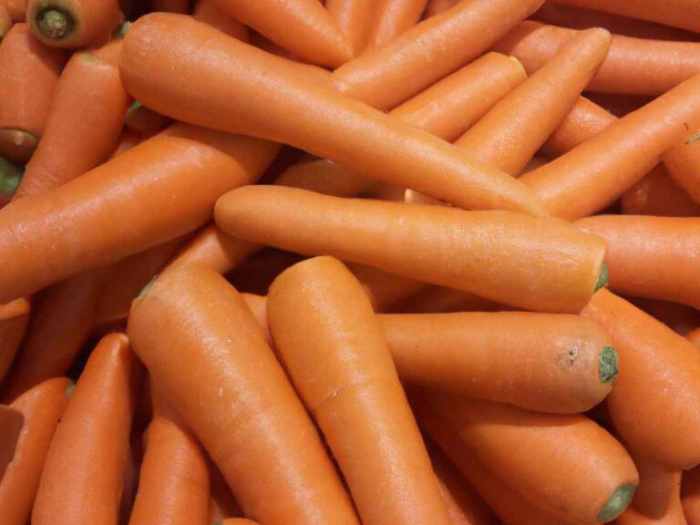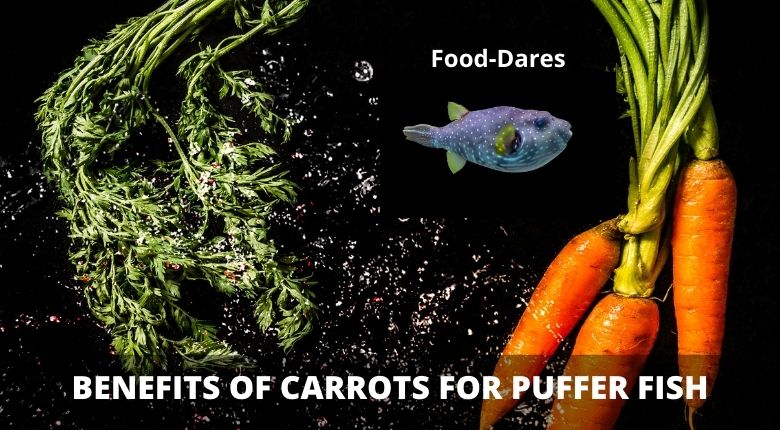Carrots are a staple vegetable in many households, known for their vibrant color, crunchy texture, and sweet flavor. Whether enjoyed raw, cooked, or juiced, carrots are a versatile and nutritious addition to any meal. They are packed with beta-carotene, fiber, and antioxidants, which support eye health, digestion, and immunity. However, like all fresh produce, carrots have a limited shelf life. In this article, we will explore how long carrots last, along with practical tips to help you maximize their freshness and quality while minimizing food waste.
The Shelf Life of Carrots
Fresh Carrots
Freshly harvested carrots can last for several weeks if stored properly. The shelf life of fresh carrots depends on their condition at the time of purchase or harvest and how they are stored. Ideally, you should select carrots that are firm, free from blemishes, and have fresh, green tops.
To maximize the shelf life of fresh carrots, follow these storage guidelines:
- Remove the Tops: Cut off the green tops, as they draw moisture and nutrients from the carrots, causing them to wilt and spoil faster.
- Wash and Dry: Gently wash the carrots under cool running water to remove any dirt or debris. Pat them dry with a clean towel to prevent moisture buildup, which can lead to mold.
- Store in the Refrigerator: Place the carrots in a perforated plastic bag or airtight container, and store them in the refrigerator’s vegetable crisper. The cold temperature and controlled humidity will help maintain their freshness.
- Avoid Ethylene Gas: Keep carrots away from ethylene-producing fruits and vegetables, such as apples, bananas, and avocados, as the gas emitted by these items can accelerate the spoilage of the carrots.
By following these tips, you can expect fresh carrots to remain good for up to 3 to 4 weeks.
Cut or Peeled Carrots
Once carrots are cut or peeled, their shelf life significantly decreases. Exposing the inner flesh of the carrot to air and moisture accelerates the deterioration process. Cut or peeled carrots should be stored under specific conditions to extend their usability.
Here are some recommendations for storing cut or peeled carrots:
- Refrigeration is Key: Store cut or peeled carrots in an airtight container or a resealable plastic bag. Keep them refrigerated at a temperature below 40°F (4°C).
- Moisture Control: Place a slightly damp paper towel in the container or bag to help maintain moisture levels. However, avoid excess moisture, which can lead to mold growth.
- Use Within a Week: Unlike whole carrots, cut or peeled carrots should be consumed within a week to ensure optimal quality and flavor. Beyond that, they may become limp, slimy, or develop an unpleasant odor.
Signs of Carrot Spoilage
Even with proper storage, carrots can eventually spoil. It is essential to recognize the signs of carrot spoilage to ensure you consume them at their peak freshness and avoid potential health risks.
Here are common signs that your carrots have gone bad:
- Soft Texture: If the carrots feel slimy, excessively soft, or mushy to the touch, they have likely started to spoil.
- Mold Growth: Visible mold or black spots on the carrots indicate spoilage. Mold can spread quickly, so discard any affected carrots immediately.
- Unpleasant Odor: If the carrots emit a sour or rotten smell, this is a clear indication that they have spoiled.
- Discoloration: Carrots should maintain their vibrant orange color. Significant browning, greening, or discoloration suggests the carrots are no longer fresh.
When in doubt, it’s best to err on the side of caution and dispose of carrots showing any of these spoilage signs.
Preserving Carrots for Long-term Use
If you find yourself with an abundance of carrots and wish to extend their shelf life even further, preserving them through various methods can be a great solution. By employing preservation techniques, you can enjoy the goodness of long after their peak season.
Let’s explore three popular methods for preserving carrots:
Freezing Carrots
Freezing is an excellent option for preserving carrots, as it retains their nutritional value and flavor. The freezing process halts the growth of bacteria and enzymes responsible for spoilage, allowing you to enjoy the taste of fresh s for an extended period.
Here’s how to freeze carrots effectively:
Prepare the Carrots: Wash, peel, and trim the as desired. You can choose to slice, dice, or keep them whole.
Blanching: Blanching helps preserve the texture and color of the . Bring a pot of water to a boil and blanch the for 2 to 3 minutes. Immediately transfer them to an ice water bath to stop the cooking process.
Drain and Dry: After blanching, drain the and pat them dry with a clean towel or paper towel. Excess moisture could lead to ice crystals and freezer burn.
Packaging: Place the in airtight freezer-safe containers or freezer bags. Squeeze out any excess air, seal tightly, and label with the date.
Freeze: Put the containers or bags in the freezer, ensuring they are stored in a single layer until fully frozen. Once frozen, you can stack them to save space.
Correctly frozen can remain in good condition for up to 12 months. Remember to use them within this timeframe for the best quality.
Canning Carrots
Canning is another popular method to preserve carrots and enjoy them throughout the year. Canned can be conveniently stored at room temperature and require minimal preparation when it’s time to use them.
To can at home, follow these steps:
Preparation: Start by washing, peeling, and cutting the into desired shapes, such as slices or sticks.
Prepare the Jars: Sterilize the canning jars and lids according to the manufacturer’s instructions. Ensure they are clean and free from any defects.
Prepare the Brine: In a large pot, combine water and salt to create a brine solution. Bring it to a boil.
Pack the Jars: Pack the prepared into the sterilized jars, leaving a 1-inch headspace at the top. Pour the hot brine solution into the jars, covering the completely.
Process the Jars: Wipe the jar rims clean, place the lids on top, and screw on the bands until fingertip-tight. Process the jars in a boiling water canner for the recommended time, typically around 20 to 25 minutes.
Cool and Store: After processing, carefully remove the jars from the canner and let them cool on a towel. Once cooled, check the seals, label the jars, and store them in a cool, dark place.
Canned carrots can last for up to 1 to 2 years when stored correctly. It is essential to regularly check the jars for any signs of spoilage, such as bulging lids, leaking, or unusual odors.
Dehydrating Carrots
Dehydrating carrots is an excellent preservation method that removes the water content, making them lightweight and compact. Dehydrated can be stored in airtight containers at room temperature for an extended period, ready to be rehydrated and used in various recipes.
Here’s a step-by-step guide for dehydrating
Preparation: Wash, peel, and cut the into thin, uniform slices or strips.
Blanching: Blanch the carrot slices in boiling water for 2 minutes to help retain their color and texture. Transfer them to an ice water bath to cool.
Dehydrator Setup: Arrange the blanched carrot slices on the dehydrator trays, ensuring they are evenly spaced to allow proper airflow.
Dehydrating Process: Set the dehydrator to a temperature of around 125-135°F (50-57°C) and let it run for 6 to 12 hours, or until the carrot slices are completely dry and brittle.
Cooling and Packaging: Once dehydrated, let the carrot slices cool to room temperature. Store them in airtight containers or vacuum-sealed bags, away from moisture and direct sunlight.
When stored properly, dehydrated can last up to 1 to 2 years. Remember to check the carrots for any signs of moisture or breakage before use.
Conclusion
Carrots are a delicious and nutritious vegetable that can be enjoyed in many ways. By understanding their shelf life and using proper storage and preservation methods, you can ensure their freshness and quality for an extended period.
- Fresh carrots can last up to 3 to 4 weeks when stored properly in the refrigerator.
- Cut or peeled carrots should be consumed within a week to maintain optimal flavor and texture.
- Watch for signs of spoilage, such as a soft texture, mold growth, unpleasant odor, and discoloration.
- Freezing, canning, and dehydrating are effective methods to preserve carrots for long-term use.
Next time you find yourself with a surplus of fresh carrots, don’t let them go to waste. Use these tips and techniques to make the most of this versatile vegetable, while reducing food waste and maintaining their nutritional benefits.
Frequently Asked Question
How long are carrots good for?
Carrots can generally stay fresh for a long period of time if stored properly. However, the exact shelf life of may vary depending on several factors such as storage conditions, quality of the , and whether they are whole or cut.
How long do whole carrots last in the refrigerator?
Whole carrots can last up to 3 to 4 weeks when stored in the refrigerator’s crisper drawer.
How long do baby carrots last in the refrigerator?
Baby carrots typically last for about 3 to 4 weeks in the refrigerator.
Can I freeze carrots for longer storage?
Yes, you can freeze carrots. When properly stored in an airtight container or freezer bag, can last up to 12 months in the freezer.
How can I tell if carrots have gone bad?
Signs of spoilage in carrots include a slimy texture, mold growth, a foul odor, or a wrinkled and limp appearance. If you notice any of these signs, it is best to discard the .
Can carrots be kept at room temperature?
Carrots can last a few days at room temperature, but they may lose moisture and crispness. Refrigeration is recommended for longer storage.


